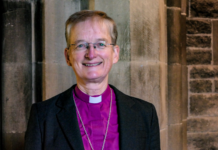An ecumenical pastoral solidarity team that visited Sri Lanka from 3 to 7 August 2022, organised by the Christian Conference of Asia (CCA), expressed alarm over the deep economic crisis that led to unprecedented political turbulence and social upheaval in Sri Lanka; members observed that there was a dire need for immediate international intervention to help the crippled nation.
The economic collapse and the worsening situation underway in the country—due mainly to high inflation, hikes in essential commodity prices, growing hunger and malnutrition, fuel crisis, a dearth of medicines, crisis in law and order, increased violence, arrests, and detention of human rights and social activists—are making the country a social volcano.
The economic chaos follows an explosion of political unrest as well as anger and anguish of people from all walks of life as demonstrated in their struggle, now known as Aragalaya, the Sinhalese word for “struggle”. Aragalaya is being used widely to describe the daily gathering of people at Colombo’s Galle Face and it began with the demand that the corrupt government under the leadership of the ruling Rajapaksa family resign and make way for a new dispensation.
The people’s movement and their regular gathering marked 100 days on 17 July, initially forcing Prime Minister Mahinda Rajapaksa to step down on 9 May, and subsequently causing his brother Gotabaya Rajapaksa to flee the country on 15 July. The President was chased from his office by protesters, who then occupied the presidential residence. Subsequently, a new President was elected by the Parliament.
The inflation in the country hit a record high of almost 55 percent while food inflation rose to 81 percent. The poor governance and snowballing economic and debt crises were deepened by the government’s hasty and botched agricultural policies, including the banning of fertilisers.
A four-member ecumenical pastoral solidarity team, led by the CCA General Secretary Dr Mathews George Chunakara, met with the church and ecumenical leaders in Sri Lanka, members of parliament, opposition political party leaders, civil society movement leaders, trade unionists, former cabinet ministers, representatives of plantation workers, inter-religious groups, and leaders of minority religious communities as well as representatives of the Aragalaya movement who have been at the forefront of the people’s struggle. The other members of the solidarity team comprised Ms Petra Oon, a lawyer (Malaysia), Dr Angelito Meneses, a Professor of Social Development (Philippines), and Rev. Jung Eun Moon, an ordained minister (South Korea).
During the course of the five-day visit, the team participated in intensive visits and meetings and learned about the ongoing crises and the subsequent deprivation of basic amenities and dignity of the Sri Lankan people.
The CCA’s solidarity team summarised the feelings of the people they met during their visits and meetings and concluded that Sri Lanka is currently facing its worst economic and political crises. The situation has had profound and reverberating impacts on the daily lives of Sri Lankans. This crisis has also had a serious impact on human rights.
Sri Lanka is in fact facing its worst economic crisis since it gained its independence in 1948. The country defaulted on its $51 billion foreign debt in May this year, and due to a shortage of foreign exchange is struggling to pay for essential imports, such as fuel, food, and medicine. Miles-long fuel queues stretch along the streets, and sky-high food inflation has pushed people into poverty and malnourishment. The United Nations estimates nearly 5.7 million people, half of them children, need humanitarian aid. UNICEF says nearly one in two children in Sri Lanka requires some form of emergency assistance, including nutrition, health care, clean drinking water, education, and mental health services.
In a meeting with the Sri Lankan church leaders at the end of the visit, CCA General Secretary said, “The pastoral team visit was an expression of the solidarity of Asian churches with the people and the churches and ecumenical organisations in Sri Lanka that are deeply concerned about the worsening situation; the message taken by the team will also be shared in wider international ecumenical platforms, and especially so during the General Assembly of the World Council of Churches (WCC) to be held in Karlsruhe, Germany by the end of this month.”
“Sri Lanka, once considered a success story with its high levels of education and standard of living, has today become a nation of a large number of impoverished masses struggling to live with dignity and to overcome the economic crisis and political instability. It is still unclear to what degree the socioeconomic and political crisis has impacted the Sri Lankan people. Sri Lanka’s economic collapse needs immediate global attention and rich countries must come to rescue the worst affected from the ongoing crisis in Sri Lanka in order to avoid another human tragedy,” added Dr Mathews George Chunakara.



